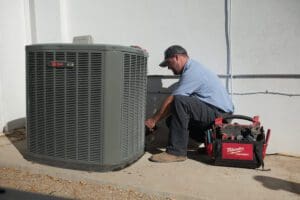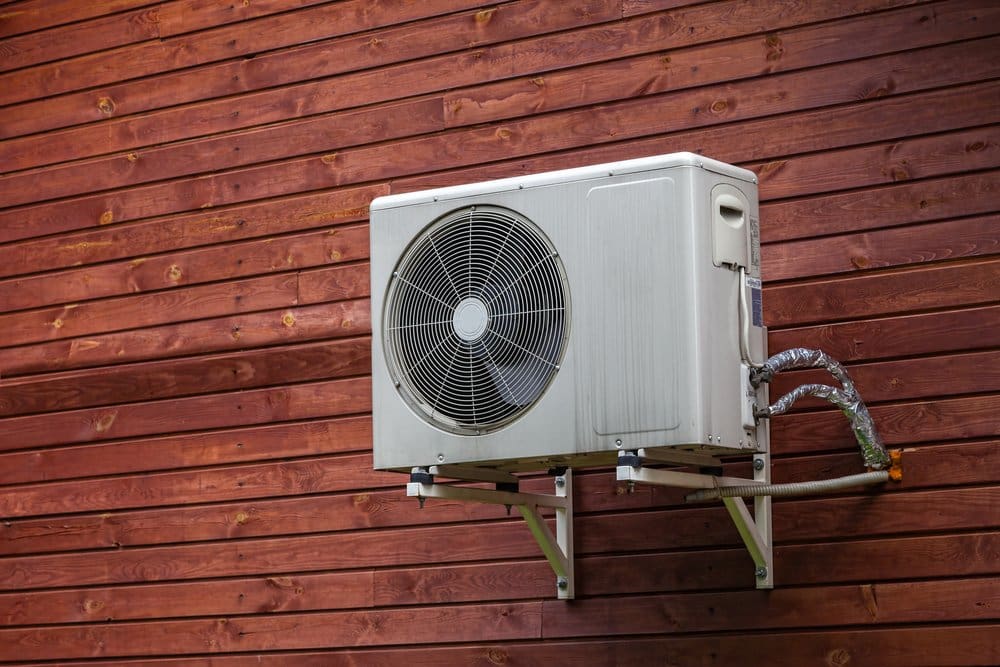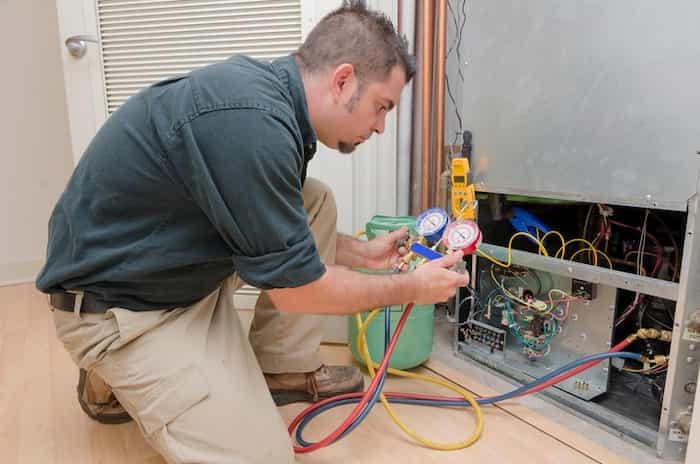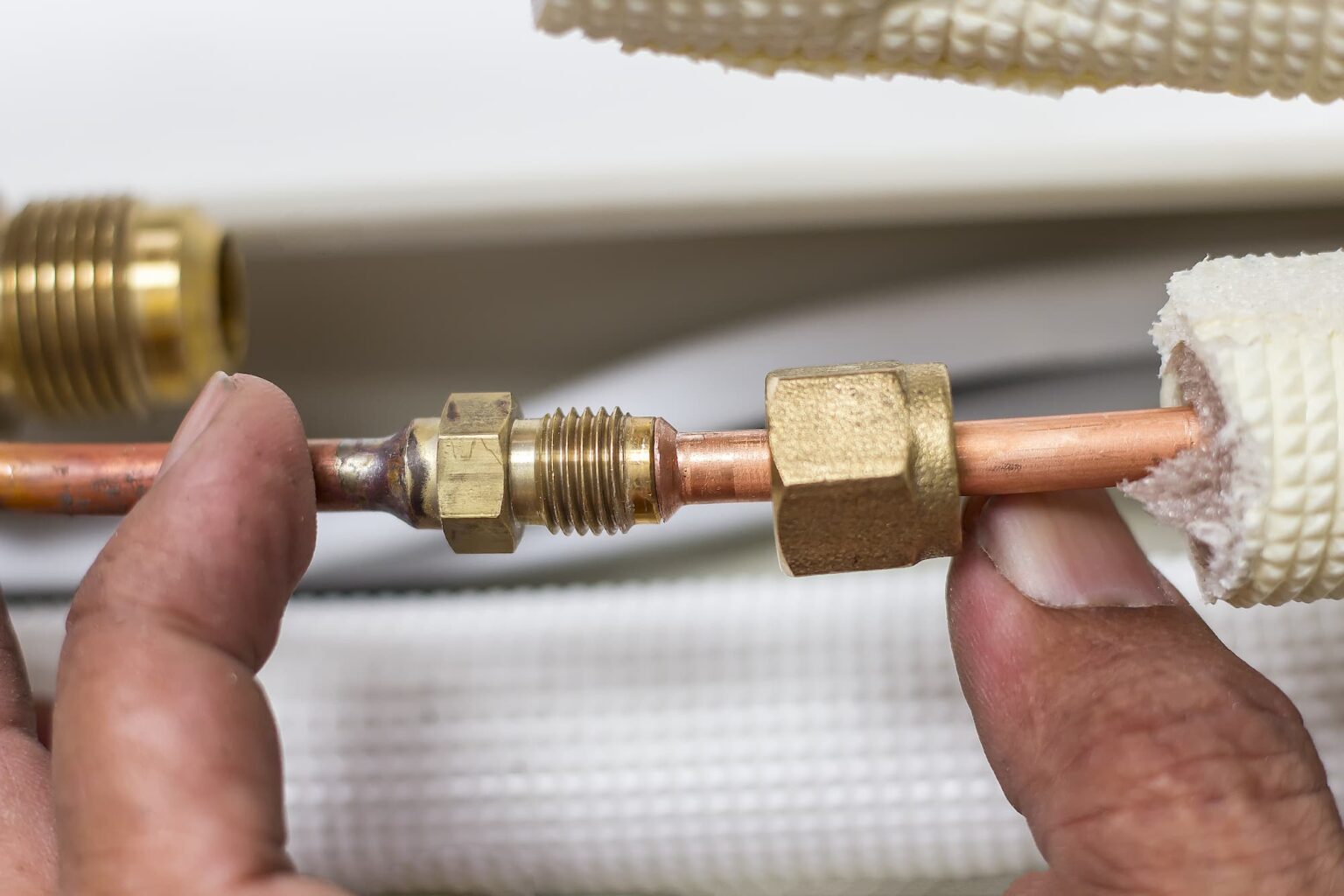There are many modern conveniences we have grown accustomed to over the decades, and electricity is surely at the top of that list. From the kitchen to the bathroom and from the bedroom to the living room, there are multiple items plugged in that we rely upon 24-hours a day and seven days a week.
Some of these appliances you might be acutely aware of, but often it takes losing the power to remind us all just how essential electricity is. In the heat of a Phoenix summer, there is no device quite as significant as the air conditioning unit, and when an AC breaker keeps tripping, your appreciation of power will certainly heat up.
Before calling in the air conditioner professionals, it is a good idea to familiarize yourself with how the air conditioning system should operate, what factors can cause it to slow down, and how those issues can ultimately lead to failure.
What You Need to Know About a Circuit Breaker
Introducing yourself to the circuit breaker might not be the first relationship you thought you would develop at your residence, but through understanding the purpose of an AC unit circuit breaker, you are better able to understand why it would trip in the first place. For your reference, here is a brief overview:
- Purpose – A circuit breaker is designed to govern the flow of electricity.
- Special function – When the flow of current becomes too much for a system, the breaker shuts off the power.
- Power surge causes – A surge in power happens when an AC unit is working too hard, or a short circuit occurs in the wiring.
- Power surge outcomes – An emergency shut-off helps prevent electrical fires and other serious damage.
- General guidelines – Reset the breaker switch for a one-time occurrence and turn the appliance back on.
Sometimes we lose power, and a simple reset of the breaker switch is enough to remedy the problem. However, if your air conditioner circuit breaker keeps tripping, do not reset it. In this situation, turning the power back on can cause further damage and create a more serious problem.
Continued complications signify that either the AC unit is requiring too much power to run normally or serious wiring issues are present. Both of these circumstances require immediate attention before turning the cooling system back on.
The Purpose of the Air Filter
Now that you are on friendly terms with the circuit breaker, it is time to familiarize yourself with the air filter in the AC unit. Here are some fun facts about this component that you probably did not know:
- Purpose – A constant intake of air is required to keep the evaporator coil in working order and the cooling system working efficiently.
- Special function – Air filters make sure dust, hair, and debris do not get inside the internal mechanisms of the air conditioning unit.
- Clogged air filter outcomes – A clogged air filter requires more effort to bring air in and reduces the amount of available air the evaporator coil can work with.
- General guidelines – If the air filter is dirty, simply replace disposable ones or clean non-disposable filters with water.
- Additional notes – Less air circulating around the coil causes it to ice up or freeze, bringing activity to a halt.
Like a domino effect, one complication leads to another with the overall result being a larger draw of electricity from the AC unit and an accompanying surge of power.
According to the type of AC unit you have, locate the air filter and inspect it for cleanliness and replace or clean as needed. When preparing for the hotter temperatures next season, make sure this inspection is part of your professional routine maintenance schedule.
Check the Fans and Condenser Coils
The air filter is not the only item collecting debris in your air conditioner over the years. When fans and condenser coils become layered in grime, they can also diminish the operating performance. To illustrate that point, consider the following:
- Purpose – Air conditioners use fans and condensing coils to create and distribute the cooled air throughout the home.
- Special function – The fan blows the cool air where you need it most, while the condenser coils take the hot air from inside the home and release it outside into the environment.
- Dirty fan outcomes – A dirty fan may not spin freely, putting more strain on the motor.
- Dirty condenser coil outcomes – Filthy coils cannot distribute hot air as effectively, causing the system to work harder.
- General guidelines – If the fan or condenser coils are visibly dirty, give them a good cleaning and add them to next year’s maintenance list.
In addition to this white-glove inspection, take time to note if the fan is struggling to operate. When an air filter is clogged, the fan has to work twice as hard and the extra effort can be another cause in the AC tripping a breaker.
How to Check the AC Refrigerant
Perhaps you have looked over the unit with a fine-tooth-comb and it could not possibly be any cleaner, yet it is clearly overheating and the circuit breaker continues to shut down power. If you have not done this already, this is the ideal time to check the refrigerant levels.
- Purpose – Air conditioning units utilize a liquid agent to assist in the cooling process.
- Special function – Refrigerant circulates through the coils, cooling incoming air and distributing the heat through the condenser.
- Low refrigerant outcomes – If there is not enough refrigerant, the system overcompensates by running longer in an attempt to cool the air.
- General guidelines – Coolant should be added and brought up to the proper amount.
- Additional notes – If the refrigerant levels drop below normal on a regular basis, there is a leak in the unit.
In old or neglected systems, cracks can form in the coils, allowing the essential fluid to escape. Seasonal maintenance helps prevent these fissures from developing and creates an opportunity to detect them before they become an issue.
Check the Compressors and Capacitors
Cold air may be the star of the show, but an air conditioning unit cannot perform without the compressor and capacitor. These mechanisms make up the heart and soul of the system and can be easily overlooked as they are located outside the home.
To get a better idea of how important these components are, the following information provides a simple overview:
- Purpose – The capacitor starts the compressor and the compressor runs the entire operation.
- Compressor failure outcomes – When the compressor fails, it is not uncommon that total replacement will be needed.
- Capacitor failure outcomes – As with the compressor, when the capacitor goes out, you will need to have the service technicians install a new one.
- General guidelines – With age, these parts may suffer from normal wear and tear and decline in performance.
- Additional notes – Routine inspections of this equipment are recommended as part of the seasonal maintenance schedule.
Due to their vital role, keeping the breaker switch off helps prevent further damage to these important components. Your knowledgeable professionals at Day & Night Air will be able to safely determine if any repairs can be made or if replacement of the dysfunctional parts is the necessary solution.
Identifying AC Overheating and Freezing Over
If any of the above conditions have been discovered in your AC unit, the chances of the motor overheating or the evaporator coil freezing over are both increased. If less air is getting into the system for the evaporator coil to work with, the coil will eventually ice over, causing the breaker to trip.
On the opposite end of the spectrum, the unit can suffer from not being cold enough. As the system takes longer to cool the air due to clogged filters, fans or condensers, the motor runs more frequently leading to potential overheating and short-circuiting.
The surge of electricity created by either event will trip the circuit breaker and cease operations.
Looking Beyond the AC Unit
When the air conditioner circuit breaker keeps tripping, it makes sense to look to the unit for answers. Between dirt buildup, the age of the unit, and fluid supply levels, there are many things that can create an increased usage of power.
However, sometimes the fault lies elsewhere such as the circuit board itself. Old breaker switches and wiring may become loose creating electrical hazards, weak connections, and poor flow of electricity.
As with any defective wiring, consult the experts for safe and proper diagnosis. Though this particular situation can be simple to fix, it is highly recommended that this process is placed in the hands of electricians and air conditioner specialists.
Setting Up Routine AC Maintenance
To keep the air conditioner in optimal working condition, with no interruptions in the cooling of your home, take time to set up a schedule for routine maintenance. Having a contractor go through the system in the spring will ensure you enjoy a carefree summer of comfort and ease.
There are multiple reasons for a circuit breaker to trip and this seasonal visit is a proactive approach to avoiding inconvenient and expensive emergencies. Certain complications are easily identified and may require nothing more than a cleaning, but if neglected they can develop into severe issues.
Calling in the Professionals
Whether it is a simple solution or one that takes more time and expertise, it is always wise to bring in trained technicians who specialize in air conditioning systems. With years of experience and possessing current knowledge of industry standards and advancements, the pros have the skills and tools to help you cool down safely and get back to enjoying your home.
Our team members offer reputable air conditioning repair services in Scottsdale, Arizona and will work with you to determine why your circuit breakers are continuously tripping when the system is activated. If you have noticed that your air conditioning unit is running a bit sluggish or tripping the breaker more often, contact the friendly professionals at Day & Night Air today. With the power shut down, and the breaker in the off position, leave the rest to our team of experts to get everything up and running.







